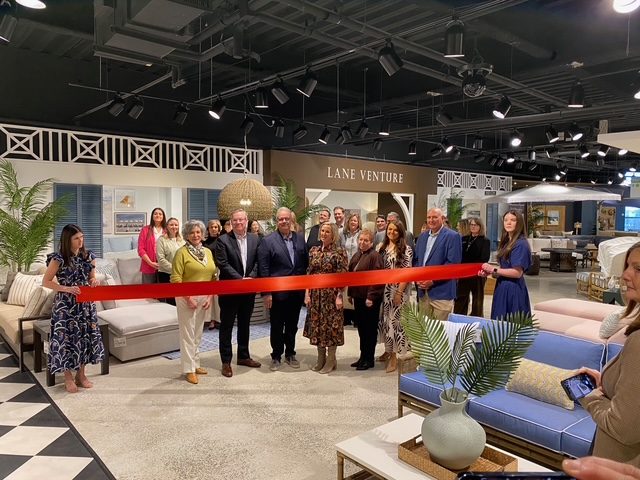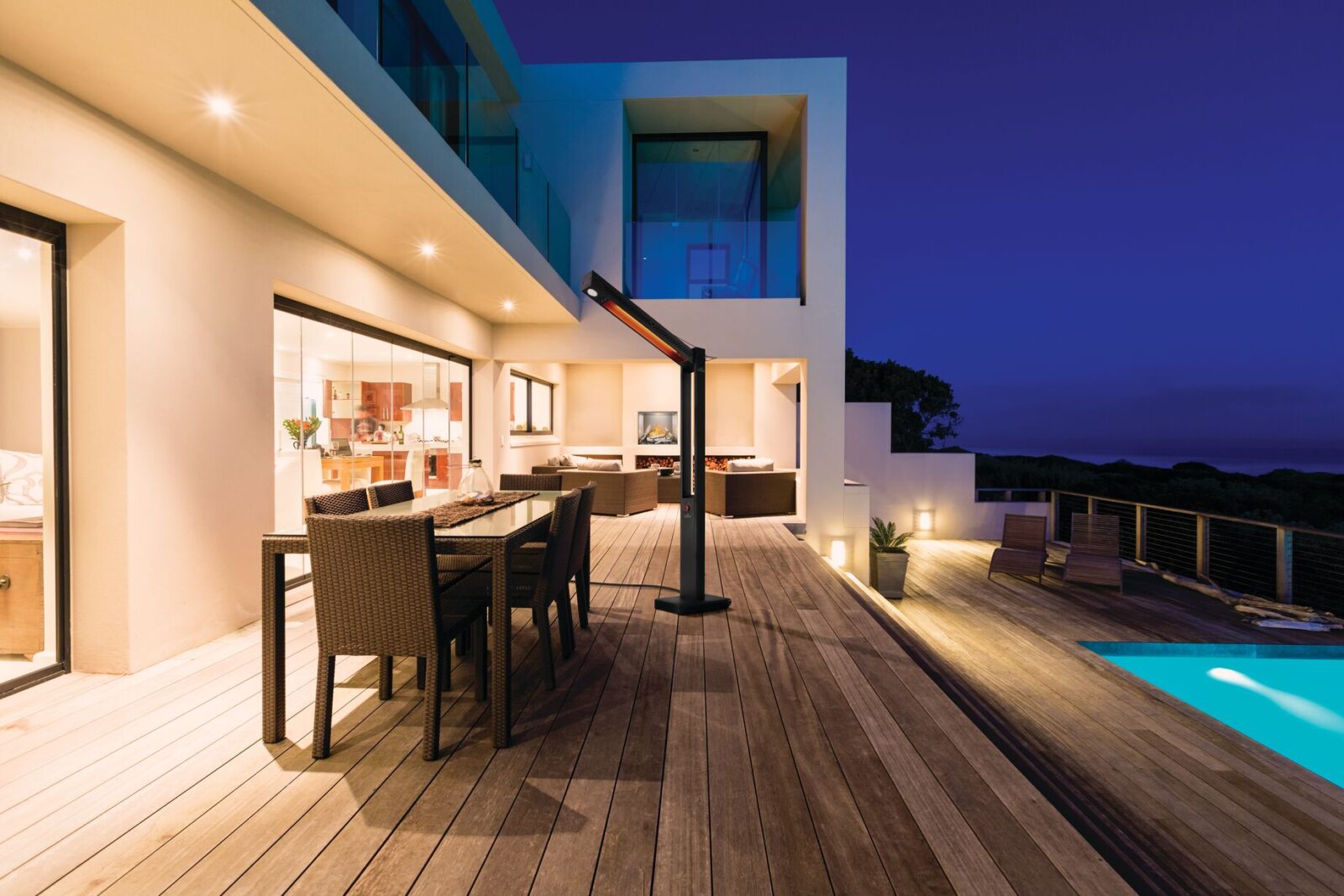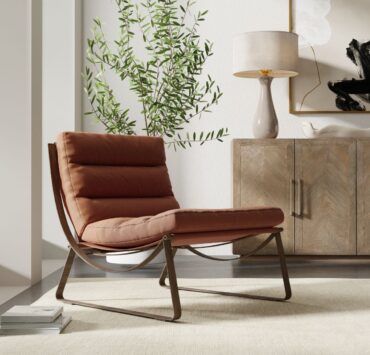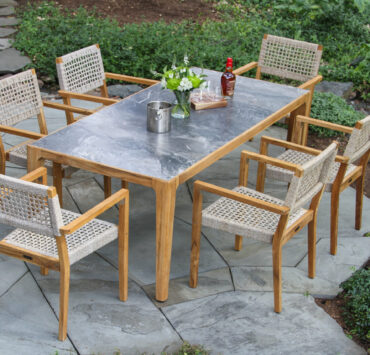
In the furniture industry, licensing partnerships can be a powerful tool for brands. We’ve all seen the Rooms To Go ads featuring stars such as Cindy Crawford, Sofia Vergara and Julianne Hough, and partnerships with celebrities, fashion brands and even institutions such as the Metropolitan Museum of Art have proven lucrative for furniture and home goods makers.
Polywood certainly knows this well. The recycled plastic outdoor furniture maker has seen phenomenal success with its licensed collections with Martha Stewart and Country Living magazine. Now Polywood has partnered with Draper James, the fashion label owned by Hollywood megastar Reese Witherspoon.
Megan Pierson, executive vice president of business development at Polywood, says that these licensing partnerships have allowed the company to expand beyond the traditional outdoor market while also giving retail partners a tool for catching the eye of consumers.
“Licensed collections help us reach new audiences and markets,” Pierson said. “We’ve introduced Polywood to a wider audience, while dealers and designers appreciate the strength of two beloved brands uniting to create exclusive, high-quality and durable products.”
For the Draper James collaboration, Polywood launched the Savannah collection, a line that draws inspiration from its Southern namesake. Rocking chairs, dining and seating pieces feature scalloped details and a timeless palette of neutrals reminiscent of the Southern sensibility of Draper James clothing and accessories.
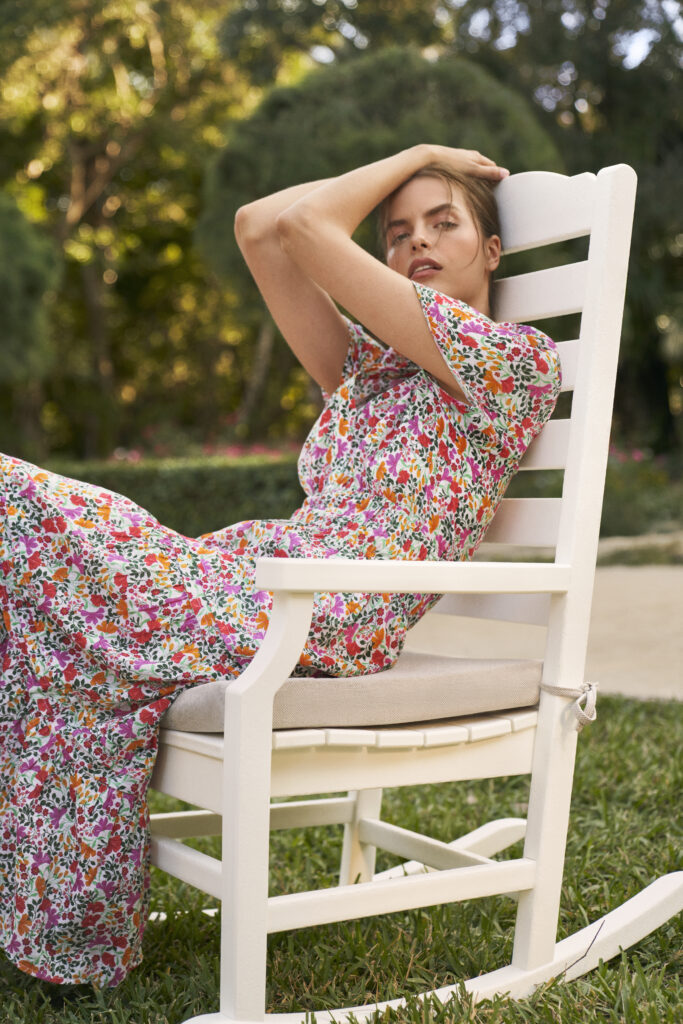
Pierson says Draper James’ Southern-inspired aesthetic felt like a natural fit both for Polywood as a brand and also as a complement to its other licensed collections with Martha Stewart and Country Living. And that’s important when choosing a licensing partner — you want individuals or brands that make sense style-wise, as well as in their values and approach to products.
“We look for partners with similar values: timeless design, quality craftsmanship and a love of outdoor living,” Pierson said. “And as we are the trusted experts in sustainable outdoor furniture, it allows the brands we partner with to expand their product categories with the American craftsmanship Polywood is renowned for.”
And that goes both ways — you want your licensing partner to get just as much out of working with you as you do with them.
“Our innovative materials and design allow us to create beautiful collections that highlight the unique aesthetic of the brands we partner with, such as Martha Stewart’s love of intricate, latticework detail seen in our exclusive Chinoiserie collection, all with the sustainable manufacturing processes that are important to our partners,” Pierson said.
That value match becomes incredibly important once the actual development, design, production and marketing processes begin. While some licensed lines simply tap into the name recognition of a famous partner, the best of these collections are born of a truly collaborative partnership between the brand and their licensee.
And Pierson says that when choosing a licensing partner, it’s important to think beyond the initial launch and select someone who shares your long-term goals for the collaboration.
“Licensed partnerships are much more than a logo; it’s vital to align on core values and vision,” she said. “Be clear about your goals and consider where the partnership will be in five or 10 years. Is it tapping into a trend, or are you committed to supporting the partnership in the long term? Having both teams at the table, from engineering and tech to creative and marketing is key to forming a true partnership.”


